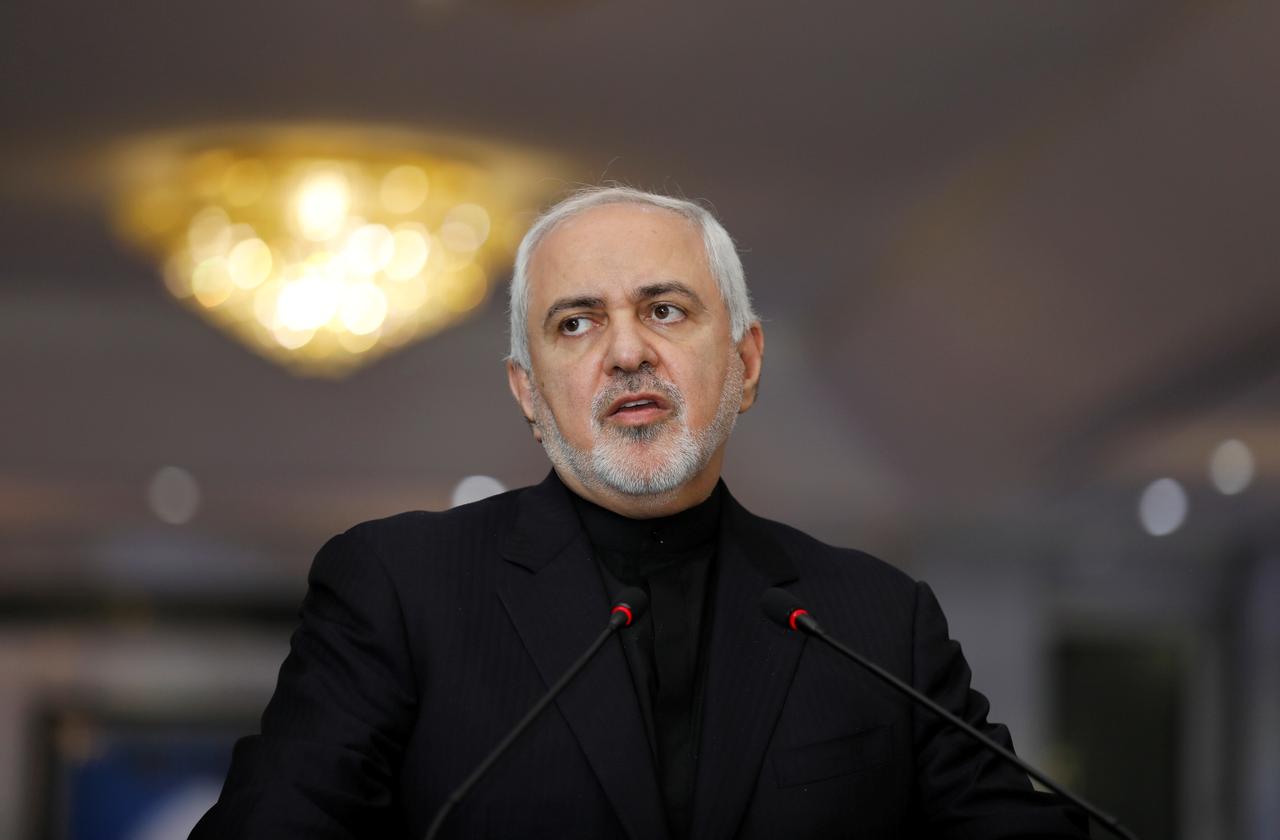By posting the words, “No thanks” on Twitter, US President Donald Trump replied to Iranian Foreign Minister Mohammed Javad Zarif’s latest overture. In an interview with German newspaper Der Spiegel last week, Zarif said that Iran was ready to resume talks with the US if the latter lifted its sanctions on Tehran. He added that it was the US that had left the negotiating table, not Iran. However, Zarif’s approach is a bit strange. This was also the previous proposal of Iran, and the US rejected it. Was it expecting a change in the position of the US or was it just a distraction?
One should put the different elements into context. Following the targeted killing of Qassem Soleimani, Iran has been keeping a low profile. It toned down its belligerent discourse, except for the instance where Supreme Leader Ali Khamenei insulted Trump, describing him as a “clown.” This calm is unusual for Iran, whose operatives have caused havoc throughout the region since the beginning of the Arab uprisings. A rocket attack on the US Embassy in Baghdad on Sunday resulted in no serious injuries. It is as if they don’t want to provoke the US. Have they been contained? Was Soleimani indispensable and his role irreplaceable, and hence this is the end? Will we see a gradual retrenchment of Iran’s role in the region? That is the wishful thinking of many, but it might not be the case. Iran might be preparing for revenge. It might be preparing for a new “era,” as Hassan Nasrallah said in his eulogy to the slain Soleimani.
It is important to note that Iran has said it is enriching more uranium today than it was before the 2015 nuclear deal. At the beginning of November, Iran had already announced that it had increased its enrichment of uranium tenfold, but the killing of Soleimani hastened its departure from the deal’s terms.
The relative calm on the Iranian side should not be understood as an admission of defeat. The US appears more adamant than ever about its policy of maximum economic pressure on Iran and it feels emboldened now that the main architect of Tehran’s regional operations is gone. However, one should keep a close eye on Iran. Chances are, Iran is preparing — but for what? Nasrallah has vowed to drive American forces out of the region. Are the Iranians sending these signals through their foreign minister, showing willingness to negotiate, while they are preparing for a stronger response? It was widely reported that when Iran bombed two military bases in response to Soleimani’s assassination, it passed advance details of the strikes to the Iraqis, who then passed the information to the Americans. Iran did not want to inflict any casualties that might drive the US to retaliate. It was described as a staged response — a farce — but it also might have been a distraction. While Zarif announced at the time that the retaliation was complete, Iran might just be preparing for the real retribution.
One possibility is that Iran is planning to go nuclear in order to garner a better negotiating position with the US. North Korea is a good example. The US was not able to get any tangible concessions from Pyongyang because it already has the bomb and, hence, is untouchable. Today, bombing nuclear Iran is different to Israel’s attack on Osirak in Iraq in the 1980s. Also, the trend in Iran’s behavior is that, as it makes a concession on one front, it compensates on another. It does that in order to avoid looking like it is relinquishing any of its principles or is in a weak position.
The relative calm on the Iranian side should not be understood as an admission of defeat.Dr. Dania Koleilat Khatib
Now that the architect of Iran’s regional operations is gone and his replacement, Esmail Qaani, is not of the same caliber, Iran might use its nuclear program to prop up its position. Qaani does not have the experience or the connections of Soleimani. He reportedly does not speak Arabic and his involvement has previously only been in Afghanistan — he has no experience in other territories. Qaani’s task is becoming increasingly difficult. The people of Iraq and Lebanon are protesting against their governments, which are allies of Iran. The pro-Iran Cabinet just formed in Beirut is facing widespread rejection from the people, while the international community is reluctant to deal with it. It is judged to be dead on arrival.
As Iran’s power through its proxies and allies seems shaky, going nuclear might offer it adequate compensation. This might be the best way to pressure the US, or it might even allow Iran to conduct its revenge for the death of Soleimani while remaining untouchable.
- Dr. Dania Koleilat Khatib is a specialist in US-Arab relations with a focus on lobbying. She holds a PhD in politics from the University of Exeter and is an affiliated scholar with the Issam Fares Institute for Public Policy and International Affairs at the American University of Beirut.
Disclaimer: Views expressed by writers in this section are their own and do not necessarily reflect Arab News’ point-of-view

No comments:
Post a Comment